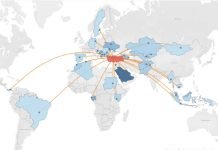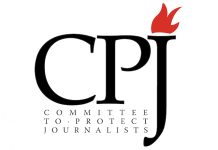Turkey and Qatar are the new sponsors of radical Islamist ideology in the Middle East, US National Security Adviser General HR McMaster was quoted as saying by UAE-based online news website, The National.
The unusually harsh remarks by McMaster, who also attributed the rise of the ruling AKP to Turkey’s growing problems with the West, were made during a speech in Washington D.C. on Tuesday.
“Radical Islamist ideology is obviously a grave threat to all civilised people,” McMaster said, according to the National. “It is being advanced through charities, Madrassas and other social organisations.”
McMaster said that the organisations were supported by Saudi Arabia decades ago, but it “is now done more by Qatar and by Turkey.”
Relations between Turkey’s autocratic President Recep Tayyip Erdoğan’s government and the Donald Trump administration are deeply strained amid an ongoing Iran sanctions trial in New York. Erdoğan has also been very critical of the Trump administration after his decision to recognise Jerusalem as Israel’s capital. Furthermore, prominent Turkish officials and pro-Erdoğan pundits have lambasted the US government for its support for and arming of Syrian Kurds.
McMaster warned that Islamist radical ideology was bridging into political Islam and named the Muslim Brotherhood as an example, according to The National. In Egypt, McMaster said, the Brotherhood’s ‘Morsi model’ monopolised the opposition, and in Turkey, AKP has consolidated power through one-party rule.
In a rare public foreign policy appearance with his British counterpart Mark Sidwell hosted by Policy Exchange in Washington, McMaster announced that US President Trump will roll out a new national security strategy on Monday.
On Wednesday, Turkish Foreign Minister has slammed McMaster for stating that Turkey and Qatar have become “the main sponsors” of extremist Islamic ideologies targeting the West. “Claims by National Security Advisor (H.R.) McMaster, who should be well aware on how our country has been fighting terrorism and all sorts of radicalism, are nonfactual, astonishing, baseless and unacceptable,” the Foreign Ministry said in a written statement.
The statement came after McMaster accused Turkey and Qatar of funding extremist Islamic ideologies during a panel held at a think tank in Washington on Tuesday. The Foreign Ministry statement reiterated that Ankara “continues to see the US as a friend and ally,” expressing its expectation of the same behavior from the Washington administration.
The statement has also repeated Turkish government’s demand from the US to stop its support to the People’s Protection Units (YPG), while stressing Turkey’s “continued fight against terrorism and radicalism.”
McMaster’s remarks came as bilateral relations between Turkey and the U.S. have hit new lows over differences on the role of the YPG in the fight against the Islamic State of Iraq and the Levant (ISIL) and Trump’s recognition of Jerusalem as the capital of Israel. Turkey considers the YPG as a terrorist organization because of its links with the outlawed Kurdistan Workers’ Party (PKK), while the US regards it as a vital partner in the fight against ISIL.
The strategy will be based on four vital strategic interests for the United States, he added. In paraphrasing US’s strategic pillars, McMaster spoke of three threats to US interests globally, and two of which centred in the Middle East.
First he mentioned China and Russia “as revisionist powers” encroaching on US allies and undermining the international order, followed by the threat from “rogue regimes such as Iran and North Korea” who he said “support terror and are seeking weapons of mass destruction.” The third threat he labelled as the jihadist radical organisations that need to be deterred by operating effectively he explained.















